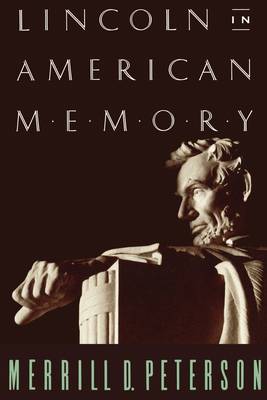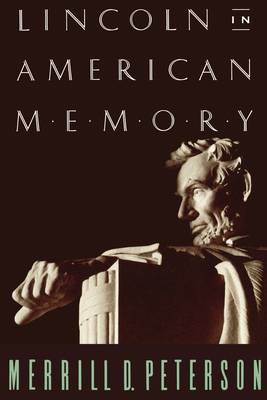
En raison d'une grêve chez bpost, votre commande pourrait être retardée. Vous avez besoin d’un livre rapidement ? Nos magasins vous accueillent à bras ouverts !
- Retrait gratuit dans votre magasin Club
- 7.000.000 titres dans notre catalogue
- Payer en toute sécurité
- Toujours un magasin près de chez vous
En raison de la grêve chez bpost, votre commande pourrait être retardée. Vous avez besoin d’un livre rapidement ? Nos magasins vous accueillent à bras ouverts !
- Retrait gratuit dans votre magasin Club
- 7.000.0000 titres dans notre catalogue
- Payer en toute sécurité
- Toujours un magasin près de chez vous
Description
Lincoln's death, like his life, was an event of epic proportions. When the president was struck down at his moment of triumph, writes Merrill Peterson, "sorrow--indescribable sorrow" swept the nation. After lying in state in Washington, Lincoln's body was carried by a special funeral train to Springfield, Illinois, stopping in major cities along the way; perhaps a million people viewed the remains as memorial orations rang out and the world chorused its sincere condolences. It was the apotheosis of the martyred President--the beginning of the transformation of a man into a mythic hero.
In Lincoln in American Memory, historian Merrill Peterson provides a fascinating history of Lincoln's place in the American imagination from the hour of his death to the present. In tracing the changing image of Lincoln through time, this wide-ranging account offers insight into the evolution and struggles of American politics and society--and into the character of Lincoln himself. Westerners, Easterners, even Southerners were caught up in the idealization of the late President, reshaping his memory and laying claim to his mantle, as his widow, son, memorial builders, and memorabilia collectors fought over his visible legacy. Peterson also looks at the complex responses of blacks to the memory of Lincoln, as they moved from exultation at the end of slavery to the harsh reality of free life amid deep poverty and segregation; at more than one memorial event for the great emancipator, the author notes, blacks were excluded. He makes an engaging examination of the flood of reminiscences and biographies, from Lincoln's old law partner William H. Herndon to Carl Sandburg and beyond. Serious historians were late in coming to the topic; for decades the myth-makers sought to shape the image of the hero President to suit their own agendas. He was made a voice of prohibition, a saloon-keeper, an infidel, a devout Christian, the first Bull Moose Progressive, a military blunderer and (after the First World War) a military genius, a white supremacist (according to D.W. Griffith and other Southern admirers), and a touchstone for the civil rights movement. Through it all, Peterson traces five principal images of Lincoln: the savior of the Union, the great emancipator, man of the people, first American, and self-made man. In identifying these archetypes, he tells us much not only of Lincoln but of our own identity as a people.
In Lincoln in American Memory, historian Merrill Peterson provides a fascinating history of Lincoln's place in the American imagination from the hour of his death to the present. In tracing the changing image of Lincoln through time, this wide-ranging account offers insight into the evolution and struggles of American politics and society--and into the character of Lincoln himself. Westerners, Easterners, even Southerners were caught up in the idealization of the late President, reshaping his memory and laying claim to his mantle, as his widow, son, memorial builders, and memorabilia collectors fought over his visible legacy. Peterson also looks at the complex responses of blacks to the memory of Lincoln, as they moved from exultation at the end of slavery to the harsh reality of free life amid deep poverty and segregation; at more than one memorial event for the great emancipator, the author notes, blacks were excluded. He makes an engaging examination of the flood of reminiscences and biographies, from Lincoln's old law partner William H. Herndon to Carl Sandburg and beyond. Serious historians were late in coming to the topic; for decades the myth-makers sought to shape the image of the hero President to suit their own agendas. He was made a voice of prohibition, a saloon-keeper, an infidel, a devout Christian, the first Bull Moose Progressive, a military blunderer and (after the First World War) a military genius, a white supremacist (according to D.W. Griffith and other Southern admirers), and a touchstone for the civil rights movement. Through it all, Peterson traces five principal images of Lincoln: the savior of the Union, the great emancipator, man of the people, first American, and self-made man. In identifying these archetypes, he tells us much not only of Lincoln but of our own identity as a people.
Spécifications
Parties prenantes
- Auteur(s) :
- Editeur:
Contenu
- Nombre de pages :
- 496
- Langue:
- Anglais
Caractéristiques
- EAN:
- 9780195096453
- Date de parution :
- 01-06-95
- Format:
- Livre broché
- Format numérique:
- Trade paperback (VS)
- Dimensions :
- 165 mm x 211 mm
- Poids :
- 730 g

Les avis
Nous publions uniquement les avis qui respectent les conditions requises. Consultez nos conditions pour les avis.






